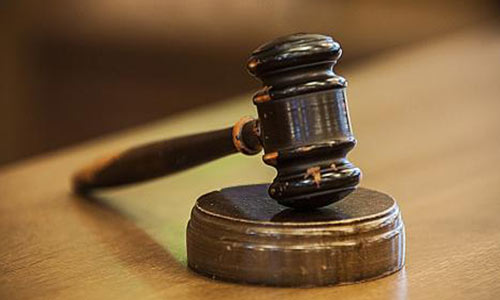A Federal High Court sitting in Lagos has ordered the state government to take all necessary steps to ensure an investigation into the death of Pelumi Onifade,
a 20-year-old reporter with an online television channel, Gboah TV.
Justice Olayinka Faji also ordered the Lagos State Government to conduct a coroner’s inquest to ascertain the cause of the death of Onifade as well as identify and prosecute those responsible.
A press statement by the Communications Officer of the Media Rights Agenda Idowu Adewale says the court made these orders while delivering judgment in a suit filed by the non-governmental organisation over the death of the journalist against the police and the Lagos State Government.
Onifade was reportedly arrested by officers attached to a Lagos State Task Force while covering the #EndSARS protests in 2020 and was later found dead at a mortuary in the Ikorodu area of Lagos where his body had been deposited.
A Lagos-based lawyer Charles Musa had filed an originating summons on August 4, 2021, on behalf of Media Rights Agenda, MRA, against the Lagos State Commissioner of Police (COP), the Inspector-General of Police (IGP), and the Attorney-General of Lagos State.
In the suit filed pursuant to Sections 6(6) and 46(1) as well as 33, 35, and 39 of the 1999 Constitution; Articles 4, 5, and 9 of the African Charter on Human and Peoples’ Rights (Ratification and Enforcement) Act, 2004; and Order II Rules 1, 2, 3, 4 and 5 of the Fundamental Rights (Enforcement Procedure) Rules 2009, the organization is asking the court to declare that:
Onifade’s shooting in Oko Oba in Agege Local Government Area of Lagos State, by agents of the COP and the IGP on October 24, 2020, in the course of his journalistic work is unconstitutional and a gross violation of his fundamental rights as guaranteed by section 33 of the 1999 Constitution (as amended) and Article 4 of the African Charter on Human and Peoples’ Rights (Ratification and Enforcement) Act (Cap A9) Laws of the Federation of Nigeria, 2004;
Mr. Onifade’s arrest and unlawful restriction of his liberty by agents of the COP and the IGP on October 24, 2020, in the course of his journalistic work is unconstitutional and a gross violation of his fundamental rights as guaranteed by sections 35, 39, and 46(1) of the 1999 Constitution and Articles 5 and9 of the African Charter;
The constitutional and statutory duties of the respondents do not extend to unlawful detention of innocent individuals who have not been charged to Court or found guilty of any offence by a competent court of law in Nigeria; and the COP and the IGP have an obligation to investigate crimes committed against Mr. Onifade, a journalist exercising his right to freedom of expression as guaranteed under Sections 33 and 39 of the Constitution and Articles 4 and 9 of the African Charter.
MRA also asked the court to issue three orders, directing the respondents to launch a transparent, impartial, and independent investigation into the circumstances of the death of Mr. Onifade whose body was found in a morgue in Lagos; directing them to conduct a coroner’s inquest to ascertain the cause of his death; and directing them to identify and prosecute those responsible for his death.
In his judgment, Justice Faji pointed out that although the COP and the IGP were served with the originating summons and other processes in the suit, they did not file any response.
He noted that MRA’s Program Officer John Gbadamosi who deposed to the affidavit in support of the suit did not witness any of the facts relevant to the matter, adding that there was also no documentation in support of the claim that Onifade’s corpse was deposited in a mortuary.
Justice Faji also observed that although there was a constant reference in the affidavit to the family of the deceased who, he said, would have the necessary information regarding their various interactions with the police, none of them filed any evidence in support of the incident. He therefore dismissed the claims against the Police for lack of evidence.
Although the judge commended the Office of the Attorney-General of Lagos State for upholding the duties of the office by attending court and assisting the court in the matter, he noted that the explanation by the Attorney-General’s lawyer that the reason a coroner’s inquest was not conducted was that the duplicate of the case file was not forwarded to his office.
The lawyer had also stated that the Attorney-General is ready to conduct an inquest.
Justice Faji stressed that the Attorney-General is not alleged to have known about the alleged unlawful killing of Onifade and is also not accused of being involved in the killing but that as stated by MRA, he has a duty to conduct an inquest into the circumstances of the death.
He said: “Indeed, in paragraph 15 of the counter affidavit, the 3rd respondent (the Attorney-General) has stated that he would prosecute anyone found to have a prima facie case established against him”.
Justice Faji therefore directed the Attorney-General to take all necessary steps to see to the investigation of the circumstances of the death of Onifade and to conduct
a coroner’s inquest to ascertain the cause of the death as well as identify and prosecute those responsible for his death.
In this article
